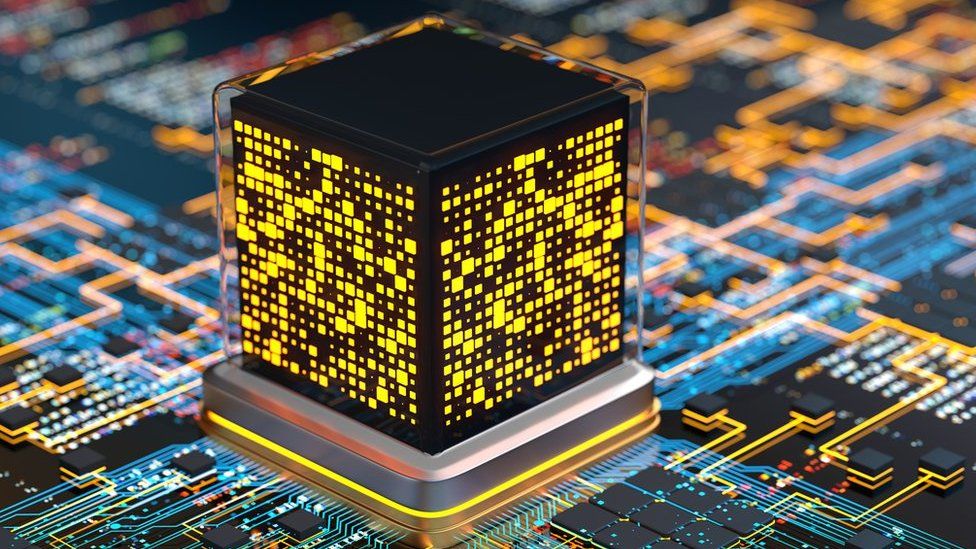 GETTY IMAGES
GETTY IMAGES
The Ministry of Defence (MoD) has acquired the government’s first quantum computer.
Quantum computers can make very complex calculations extremely quickly and their creators say they can solve the problems regular computers cannot.
The MoD will work with British company Orca Computing to explore applications for quantum technology in defence.
Stephen Till, of the MoD’s Defence Science and Technology Laboratory (DSTL), called it a “milestone moment”.
The computers found in most of our homes and workplaces process data in bits, which have a binary value of either zero or one.
Quantum computers instead use a two-state unit for data processing called a qubit.
This can represent digits like one or zero simultaneously through a quantum mechanical process called superposition, letting quantum computers bridge binary digits and cope with uncertainty where regular computers cannot.
Quantum computing experts and physicists say this means that the problems combed over by average computers for years could be solved in a matter of minutes.
Promise v reality
Prof Winfried Hensinger, head of the Sussex Centre for Quantum Technologies at University of Sussex, says the true potential of quantum computers will take time to fully materialise.
“They can’t actually solve any practical problems yet. They’re enabling you to maybe gauge the possibilities of what working on a quantum computer would have if you can scale this machine to really large system sizes.”
But he adds the promise of quantum computing, and the MoD’s exploration of it, is still significant.
“Quantum computing can be disruptive in nearly any industry sector,” Prof Hensinger adds.
“You can imagine that within defence, there’s a lot of problems where optimisation can play a huge and very important role.”

Leave A Comment